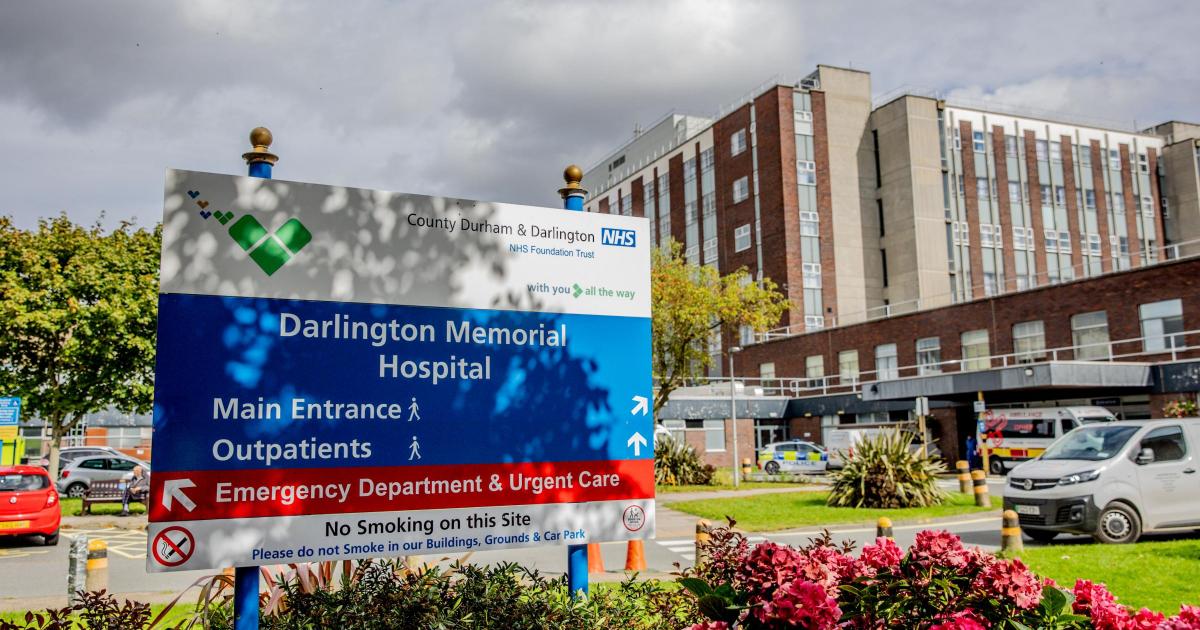An independent external probe has found the County Durham and Darlington NHS Trust’s (CDDFT) breast cancer services were following outdated practice.
This has led to, in some cases, excessive surgery, unnecessary invasive surgery, and a failure to consider all options, including breast reconstruction.
The review, carried out by the Royal College of Surgeons (RCS), was sparked after a patient safety incident earlier this year.
The CDDFT has now issued an apology to patients who received care that did not meet the standards that both they, or the trust, would expect.
Kathryn Burn, executive director of nursing, said listening to concerns has been a “vital part of learning and improving” and remains committed to speaking “directly with any patient whose care warrants follow-up”.
Potential harm including ‘unnecessary disfigurement’
Since February, the CDDFT has reviewed 123 individual cases and has spoken with more than 80 patients to discuss what could have been done differently.
In July 2024, following an external peer review led by the Northern Cancer Alliance which raised concerns about clinical approaches and service integration, North East and North Cumbria Integrated Care Board (ICB) invited the Royal College of Surgeons (RCS) to carry out an independent review of breast services.
This step was taken with the full support of the trust and with a shared commitment to transparency and patient safety.
The “full review” was confirmed in April when the trust said an audit suggested some aspects “require investigation”.
The University Hospital of North Durham (Image: The Northern Echo)
The RCS team visited in January 2025 and issued its report in April 2025, which flagged out of date clinical practices and issues.
This included “excessive or unnecessary surgery and failure to consider and/or discuss suitable treatment options including breast salvage and/or reconstruction”.
The review noted three actions necessary for patient safety and 17 further recommendations, including weaknesses in record keeping, developing the roles of breast care nurses, and establishing effective breast surgery governance.
Every patient case flagged as ‘red’, or whose care was graded ‘unacceptable’ by the RCS, has been subject to further review.
The board summary report said there is “clearly potential harm” associated with this, including pain, unnecessary disfigurement, and failure to preserve breast tissue.
It added that the potential for psychological harm “has been evident”.
There have also been look back exercises to understand potential and actual harm, which identified two cases where patients were discharged after a diagnostic procedure but later re-presented with cancer, which was missed on the first occasion.
In total to date, the trust has opened 191 incidents relating to breast surgery look-back exercises and closed 123.
Of the closed incidents, in 11 cases, there was moderate harm and in a further 61 cases there was minor harm. Some 68 cases remain open, awaiting expert review.
“It is highly likely that we will record and investigate further incidents”, the report said.
The board report noted several reasons why the issues may have occurred, including a significant growth in demand, disruption from the Covid-19 pandemic, and clinical practice not being kept up to date in some cases.
Other issues included under investment in the service, in particular in staffing and specialist equipment, and how staff did not always feel able to speak up and raise concerns.
Review remains ongoing
Despite the findings in the report, the review remains ongoing, with many important areas of improvement already having been identified and addressed.
The trust has appointed two new consultant breast surgeons, invested in modern equipment and strengthened both its multidisciplinary team processes and clinical governance arrangements.
It has spoken with more than 80 patients to openly discuss elements which could have been done differently and been improved.
Kathryn Burn, executive director of nursing, said: “We know that some patients have not received the standard of care that we would want for them, or that they deserve.
“We have identified areas where improvement was needed – including how surgical decisions were made, how our multidisciplinary teams (MDTs) worked and where some outdated practices were still in use.
“For some patients, this may have resulted in more extensive surgery than was clinically necessary at the time. We fully recognise how distressing this is to hear, and we are truly sorry.
“Over the past four months, we have been reviewing the care of patients who had surgery through the breast service in 2024.
“Where we have concerns about the care a patient received we are contacting them directly and personally about this. Patients whose care has been reviewed and found to be appropriate are also being contacted to provide reassurance.
“This work is not yet complete, and we continue to review patient notes. We have also set up a patient helpline and email address where any patients who have questions or concerns about their care can get in touch with us to share their experience.
“We are incredibly grateful to the patients who have taken the time to speak with us, to share their experiences and to raise concerns. Listening to these experiences has been a vital part of learning and improving.
“The review is still ongoing and we remain committed to speaking directly with any patient whose care warrants follow-up. We also continue to welcome contact from any patient who has concerns about their experience.”
